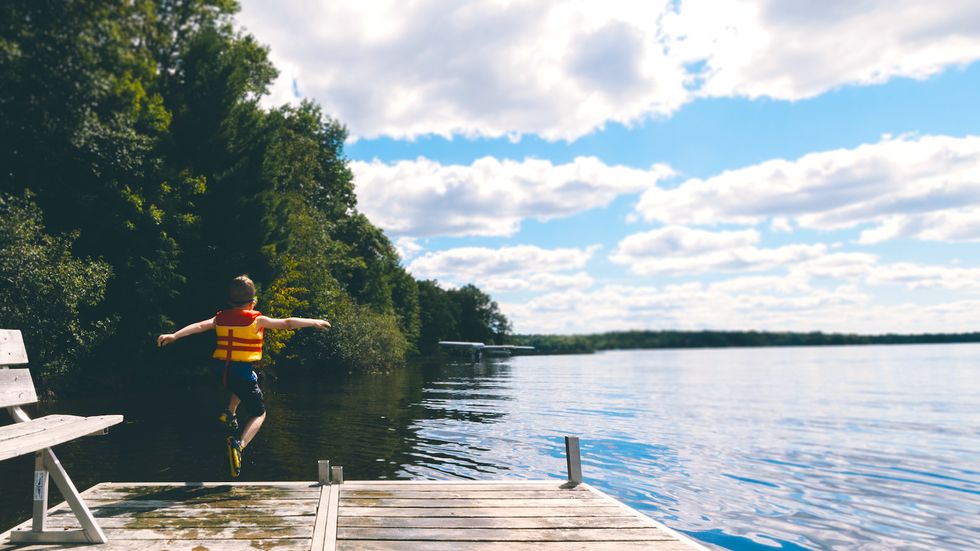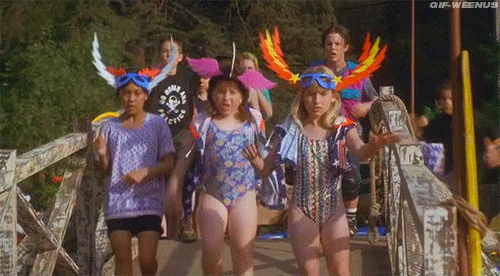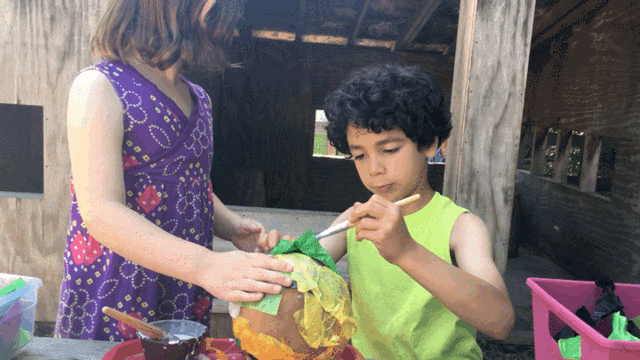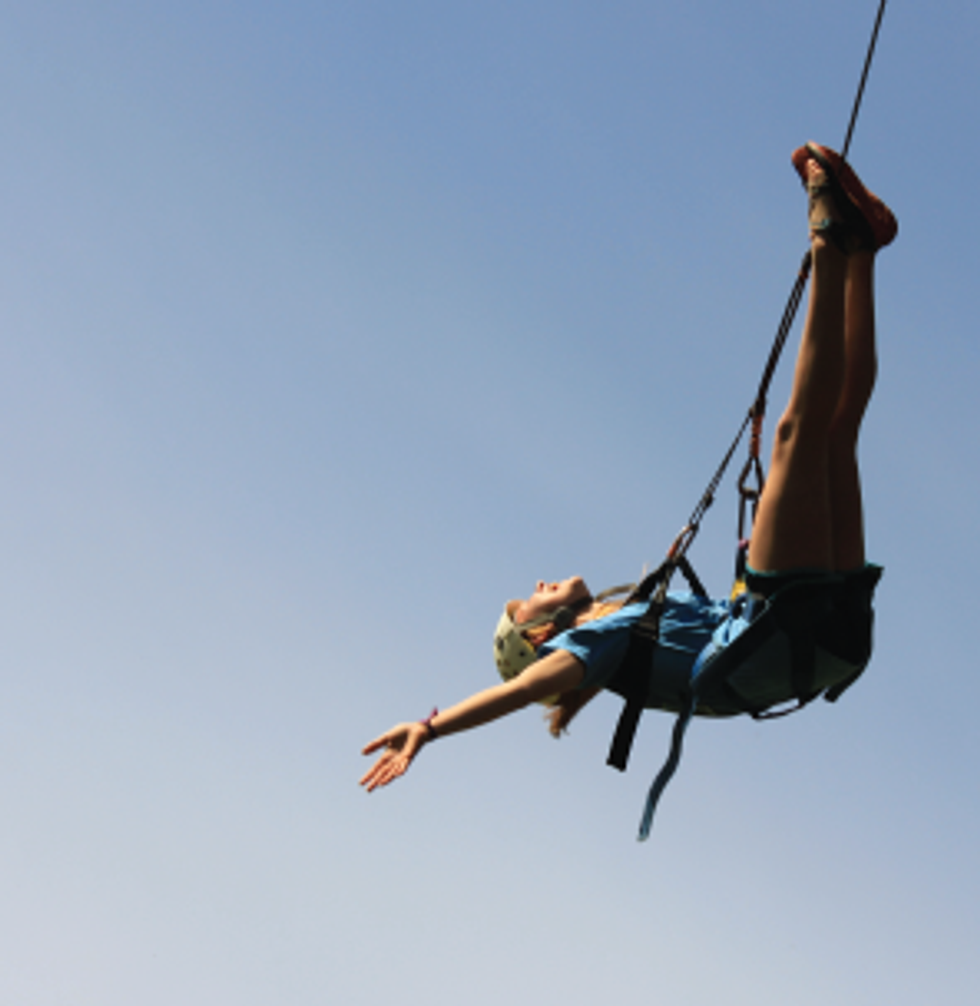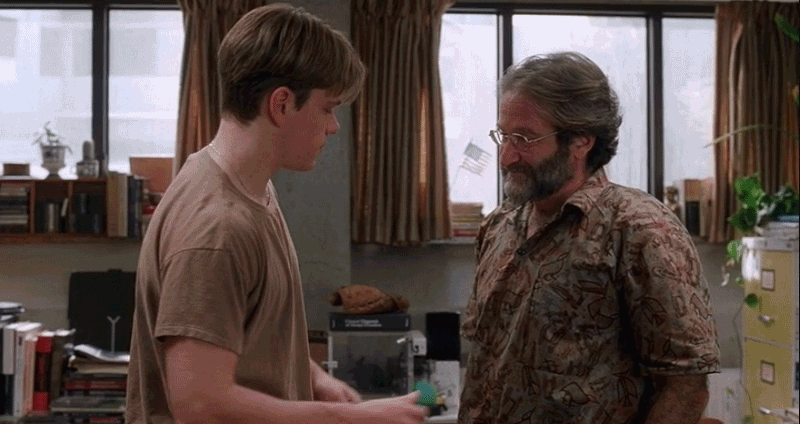I don't know who loves the idea of overnight summer camp more, the camper or the parent of the camper. The camper gets a week of endless fun: the enjoyment of summer camp for them is drawn from the freedom they are given, the new friends they meet, and knowledge learned (trust me, it's more than you think). The parents, however, get to live a week of "no-kid" life. Pretty sweet deal on both ends if you ask me. I grew up a devout New Life Ranch kid and loved every second of my time there. The spiritual growth I experienced paired with the friendships I gained and fun I had were unprecedented. As I have grown from my childhood summer camp days, however, it becomes more and more clear that I learned much more than just how to play carpet ball or foster a relationship with Jesus Christ (the most invaluable lesson I personally learned): I learned some valuable life lessons and skills that become more applicable and evident every day.
1. Respect For Others
This is a big one. It is one thing to be respectful to your family. It is a whole another thing to learn to show respect to others. From those that serve you breakfast, to your counselors you adore, to the 12 new best friends in your cabin, to the boy that thought it would be funny to push you down the ginormous slide, there is something magical about camp that allows you to learn how to respectfully handle relationships with others, no matter what that relationship may be.
2. Organization Is Key
As I prepare to venture off to the land of college, I look back at my organizational skills I picked up over my years of overnight camps. As Drake said, I really "started from the bottom" on my organizational skills, throwing the heaps of dirty and clean clothes into one communal trunk in which they resided for the week. By my last year of camp, I had made some major organizational improvements. Outfits packed in individual bags, a dirty clothes bag (shocking!) and even a hanging organizer that fit every clothing and miscellaneous item perfectly. Learning how to be organized in the tight confines of a cabin with around 16 other girls is a challenge, to say the least, but a skill that suddenly clicks at camp.
3. Learn To Fight Homesickness
No instant communication with Mom and Dad?!?! But what if I die or something? As excited as I was to go to camp every year, I always had friends that were struck with the dreaded 'homesickness'. Camp happens to be the best cure for this. A week with no call phones or instant communication can be very challenging, but being surrounded by 16 new friends that are either providing support or feeling the same way is comforting. Learning to fight homesickness early is incredibly beneficial, and will be especially useful during the first semester (or two) of university life.
4. Your First Taste Of Independence
The ability to make a decision without your parents hovering over you for a week at camp is a new and exciting experience for many. While many parents do foster independence within their children, camp gives a whole new meaning to the word for most kids. They can walk to the dining hall by themselves if they want, they can walk with 25 of their new best friends of they want. They can take mountain biking or canoeing classes. The world is their oyster- and they get to call all the shots. Pretty exciting, big time stuff right there.
5. Identifying Personality Traits
Until you are put in different environments or adverse situations, certain personality traits will lay dormant. Camp tends to bring these traits to the surface, both good and bad. In my opinion, however, it is always better to observe in yourself that you tend to be competitive or get cranky when you are in the sun too long at camp versus the real world.
6. Leadership Skills
This is a big one. Most camps place kids in situations that will help them evaluate what type of leader they are and what situations they function best in. Learning what type of leader you are and how you contribute to a team is an invaluable camp skill.
7. Communication
This is applicable on so many levels. First, at camp, there are no phones. This works well for a couple of reasons. First, to communicate with anyone outside of camp, you have to learn to write and address letters. Important life skill. Second, there is no way to text your friend at camp and see if they are at the canteen or the waterfront. Who knows where they are? This forces you to physically walk outside and ask others if they have seen that friend. Camp also forces kids to communicate big ideas and questions to others. It also teaches them to ask for help from others: counselors, older campers, friends, the janitor, whoever. Sometimes they learn the best communication of all, that which is silent yet effective and intentional. The art of communication is a camp skill that is often overlooked.
8. Confronting Your Fears
Camps often create tasks or scenarios for campers that challenge them to confront a fear that they have: speaking in public, completing a ropes course, jumping off the diving board, eating the Brussels sprouts, you get the idea. Camp also provides a safe space for campers while they confront these fears: they are never (from my experience) forced into any task they do not wish to participate in, however, they will find that they will be asked to confront those fears and given the supplemental support system to succeed at doing so.
9. The Value of A Mentor
Another camp skill often overlooked. As I have grown older, I have found it more relevant to have a mentor or someone that you can look up to ask questions to without being judged. Camp happens to provide these in the form of counselors. Never have I seen anything as precious than a camper talking about their counselor that was just the coolest. Disclaimer, counselors are not perfect. But as a camper and a kid, you totally think they are. the counselor-camper system is designed to provide mentors for the campers that they can connect with on a personal level that remains long after camp ends. Teaching kids the value of a mentor on this basic level is so important, and learning how to have conversations with your counselor/mentor is even more so.
10. The Value Of A Safe Space
For many kids, going to camp is their happy place, their week to discard everyday life and soak in every moment of a week just for them. Camp is also a safe space, however. A place where they can freely express themselves however they choose. Do you like to draw? Great! Do you want to sing Hannah Montana with all your friends as you run across camp? Be my guest. As I have grown up, I have found great value in evaluating the places in which I can classify as 'safe spaces.' This may be a physical place, or it may be a person. Whatever your safe space is, the safe space camp provides kids is one that fosters the idea that everyone needs a place to feel at home.
When you add these on top of the specialized knowledge you child is receiving from whatever camp they attend (spiritual, artistic, etc.) camp begins to look a little more intentional than just a week of sweet summer fun. So don't just send your kids to camp, feel good about it knowing that you are not just investing in a week of fun and games, but also important life skills that will shape them as they grow.



